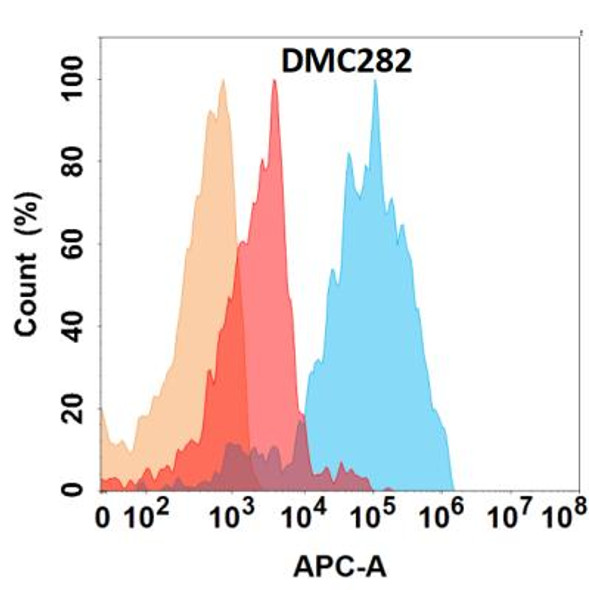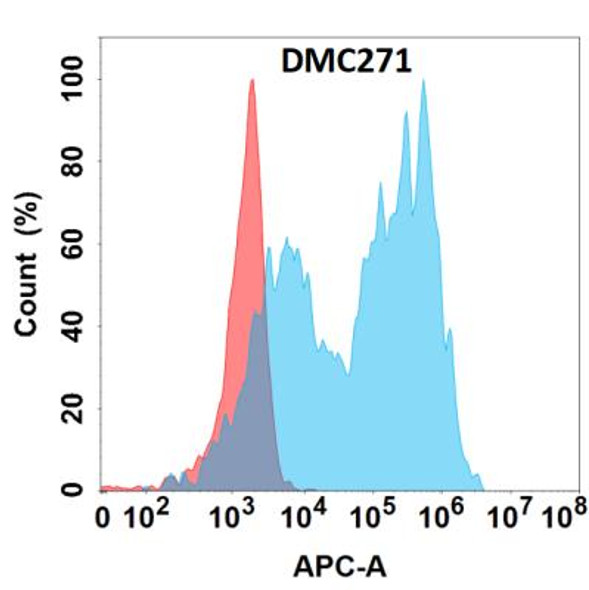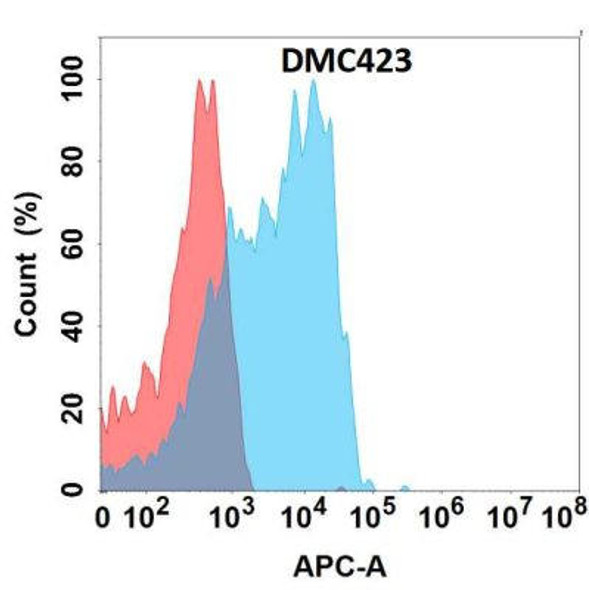Anti-TNFSF11 Chimeric Recombinant Rabbit Monoclonal Antibody (HDAB0225)
- SKU:
- HDAB0225
- Product Type:
- Rabbit Monoclonal Antibody
- Antibody Type:
- Monoclonal Antibody
- Size:
- 100 μg
- Reactivity:
- Human
- Host Species:
- Rabbit
- Antibody Isotype:
- Rabbit/Human Fc chimeric IgG1
- Clone:
- DMC267
- Synonyms:
- CD254, hRANKL2, ODF, OPGL, OPTB2, RANKL, sOdf, TNLG6B, TRANCE
Description
system_update_altDatasheet
| SKU: | HDAB0225 |
| Size: | 100 µg |
| Clonality: | Monoclonal |
| Clone: | DMC267 |
| Synonyms: | CD254, hRANKL2, ODF, OPGL, OPTB2, RANKL, sOdf, TNLG6B, TRANCE |
| Applications: | Flow Cyt |
| Recommended Dilution: | Flow Cyt 1:100 |
| Host Species: | Rabbit |
| Isotype: | Rabbit/Human Fc chimeric IgG1 |
| Reactivity: | Human |
| Purification Method: | Purified from cell culture supernatant by affinity chromatography |
| Formulation: | Powder |
| Buffer: | 1XPBS |
| Storage: | Store at -20°C to -80°C for 12 months in lyophilized form. After reconstitution, if not intended for use within a month, aliquot and store at -80°C (Avoid repeated freezing and thawing).Lyophilized antibodies are shipped at ambient temperature. |
| Usage: | Research use only |
| Background: | This gene encodes a member of the tumor necrosis factor (TNF) cytokine family which is a ligand for osteoprotegerin and functions as a key factor for osteoclast differentiation and activation. This protein was shown to be a dentritic cell survival factor and is involved in the regulation of T cell-dependent immune response. T cell activation was reported to induce expression of this gene and lead to an increase of osteoclastogenesis and bone loss. This protein was shown to activate antiapoptotic kinase AKT/PKB through a signaling complex involving SRC kinase and tumor necrosis factor receptor-associated factor (TRAF) 6, which indicated this protein may have a role in the regulation of cell apoptosis. Targeted disruption of the related gene in mice led to severe osteopetrosis and a lack of osteoclasts. The deficient mice exhibited defects in early differentiation of T and B lymphocytes, and failed to form lobulo-alveolar mammary structures during pregnancy. Two alternatively spliced transcript variants have been found. |






